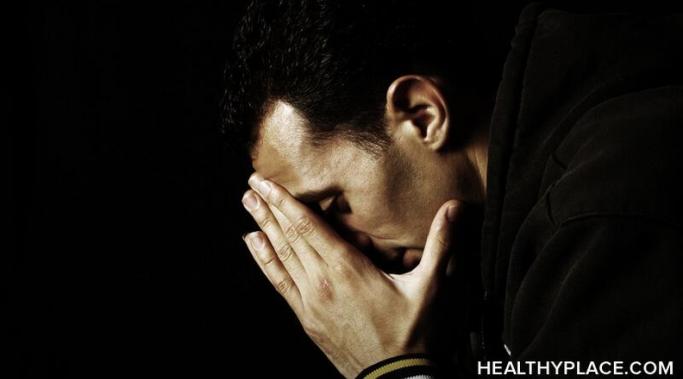Blogs
Dear Post-Traumatic Stress Disorder (PTSD) Caregivers,
Most of the time those of us in the PTSD healing community focus on survivors. Today, I'm focusing on you (survivors, share this with the caregivers in your life!) because supporting you helps you better support your survivor.
I know the PTSD journey is tough for you. It's hard to live and cope with, endure and anticipate PTSD symptoms, plus support someone who at times behaves in a crazy manner. You and your life can get swallowed up in the process and so it makes total sense that you want recovery to happen as quickly as possible.
The truth is, anyone struggling with symptoms of PTSD wants to heal as quickly as possible, but that's not always an option.
Keep Your Eyes on the Road and Not on Your Skin
Whether or not you’d like to believe it, the uncontrolled obsessiveness many have with their phone is similar to how people feel when they need to self-harm. Here's what I mean by that analogy.
When you’re driving, distractions are everywhere. You may not realize you’re distracting yourself by making your music louder or adjusting your sunglasses in the mirror, but you are. Whenever your eyes are off of the road for a second, you are that much closer to getting in an accident.
We have seen so many deaths and injuries from texting related incidents and it’s extremely hard not to look down at your phone during a commute. Most of the time, you have no reason to look at your phone in the first place, but you are just drawn to it, automatically.
I mentioned to my psychiatrist that my sister is getting married this week and my doctor reminded me that if I have mixed or depressed feelings at the wedding not to panic because this can be normal. This made me think – for those prone to depression, maybe weddings are similar to the holidays in that they can provoke the exact opposite of what you think you should be feeling. At a very “happy” event like a wedding, we can feel pressure to feel very good. And what if we don’t?
Chronic pain is part of my depression, and it's making me feel so very uncomfortable tonight. I have several health problems that stem from having depression and their symptoms are often more debilitating than depression is on its own. Some come from the stress of having depression, others are a side-effect of my antidepressants. Overcoming my pain is complex, and it often feels like this never ending cycle of chronic pain, depression and pills.
When self-harm is brought to the table, how do you think it feels when you call someone a cutter? Do you think the person wants to be seen as just that – a self-harmer? Why not call them a musician or a writer? An athlete or an artist? Why not recognize them as the person they really are, not the struggle?
Why do negative labels often take priority over the positive ones?
In all honesty, the first week of addiction treatment at an inpatient drug rehab center is probably not going to be pleasant. I’m not saying this to scare you, but to prepare you for what is most likely going to be a rough week.
If worry and anxiety were the keys to success, I’d be ruler of the world. Success - it means different things to different people. Someone might want to be a multi-bajillionaire by the age of 30. Someone else might want to be able to eat a meal that day. We all have goals around finances or relationships or academics or fitness or health or anything else that people need and desire. With goals inevitably comes anxiety.
One of the worst things about having a mental disorder is the symptoms the mental disorder causes. These symptoms are the cause of much suffering for those of us who have received a mental health diagnosis. We face our symptoms every day, sometimes every minute of the day. They can cause us to see the world and the circumstances of life very differently than people who aren’t mentally ill.
Because we sometimes perceive things this way, we occasionally come into conflict with people. It’s often family who don’t comprehend our behavior, especially since they see us at our worst. Misconceptions can, and do, happen, frequently, on both sides. Of course, it’s not only we who misperceive. Misperceptions can lead to stereotyping, part of mental health stigma. Let’s look at some examples of these stereotypes.
Having a mental illness brings a world of new perspectives, life experiences, and a change in reality forever. How does one survive the everyday, when it feels at every turn you are hit over the head by a new challenge facing mental illness stigma? It is never easy to deal with a mental health issue and it is equally as difficult to manage with the everyday annoyances, put downs, negative media reports, and a world that is just plain stigmatized.
After trauma, the number one thing I hear survivors say is, “I just want things to go back to the way they were.” That’s a normal wish and desire. Before trauma, you felt a sense of safety, security, surety and certainty that made you feel like you understood the world and your place in it. Even if your trauma happened so early that you can’t remember life before it, the idea of safety holds true.
Of course, you can’t go back to who you were or could have been before. You can only go forward to discover the new you.









